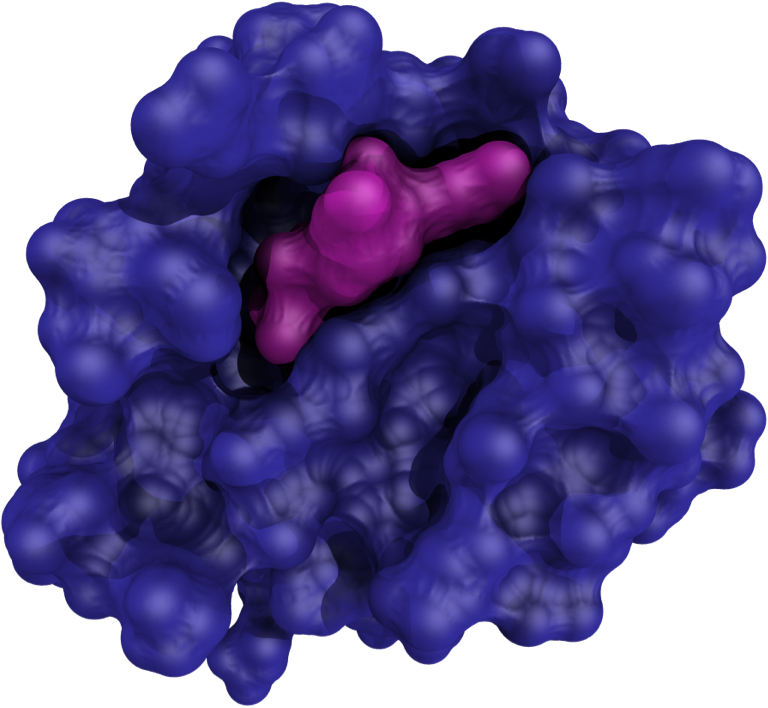precision pipeline
Dual KRASG12C Inhibitor
The protein KRAS has for decades been considered a holy grail of cancer drug discovery. For most of that time, it has also been considered undruggable.

Activated KRASG12C
Among cancer-driving genes, few are as prominent as KRAS. First identified in 1982, KRAS mutations are now known to be involved in about 14% of human cancers. The KRAS protein is a small membrane-bound GTPase important for multiple cancer cell-signaling functions. It exists in two states. When bound to GDP, it is “off,” or inactive. When GDP is exchanged for GTP (usually in response to various growth stimuli), KRAS is activated, or turned “on,” activating downstream signaling to promote cell proliferation and survival. KRAS returns to the inactive “off” state when GTP is hydrolyzed to GDP. Cancers can arise when KRAS signaling gets stuck in the active “on” state. Activation occurs through multiple mechanisms, most often through activating mutations of KRAS. Mutations activate KRAS by shifting the balance towards a GTP-loaded or active “on” state, triggering tumor proliferation and survival. The central role of KRAS as a molecular switch driving cancer has made it the focus of drug discovery for decades.
Mechanism of Action for FMC-376, a Dual KRASG12C Inhibitor
A drug that targets both active and inactive states of KRASG12C maximizes the potential for patients to benefit from treatment

Mechanism of Action for FMC-376, a Dual KRASG12C Inhibitor

KRASG12C is a specific KRAS mutation representing 12-14% of all KRAS mutations.
This KRAS mutation is found most prevalently in people with non-small cell lung cancer (NSCLC), colorectal carcinoma (CRC), and pancreatic ductal adenocarcinoma (PDAC). While it has been a target of interest for many years, advances are only recently being made.
Frontier’s lead program is FMC-376, a novel dual inhibitor of active and inactive KRASG12C. By completely blocking both forms of the KRAS mutation, FMC-376 has the potential to overcome the non-response and resistance seen with single-acting KRASG12C inhibitors.

